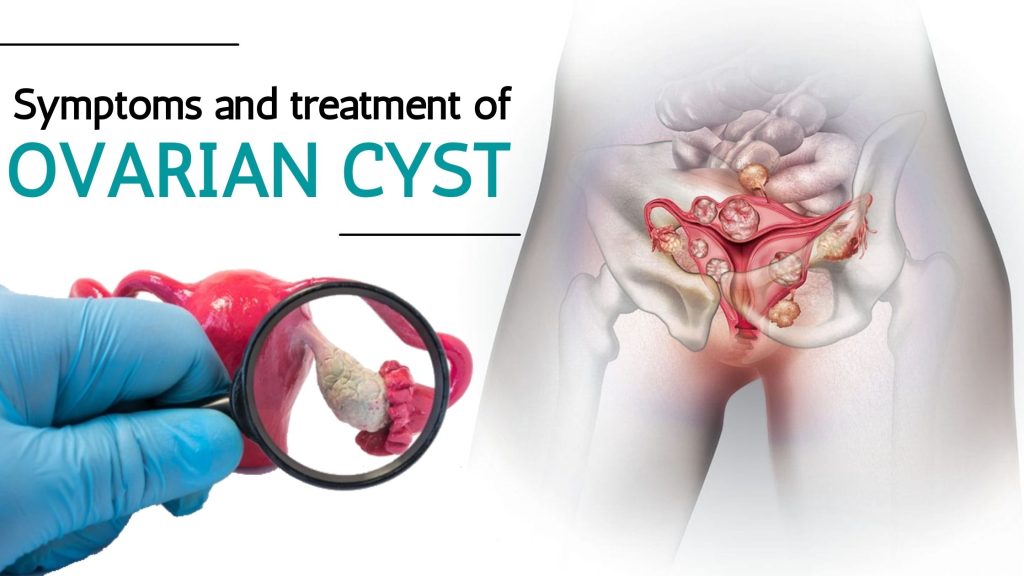Cysts in the ovaries are fairly prevalent. They are most common during ovulation. This is the time of the month when the ovary produces an egg. Functional cysts are what they’re called. The majority of them aren’t malignant.
According to the Infertility Specialist in Greater Noida, ovarian cysts affect many women at some point in their lives.
Ovarian cysts, particularly those that have ruptured, can, nevertheless, produce significant symptoms. Get frequent pelvic checks and be aware of the symptoms that might indicate a significant condition to safeguard your health.
Symptoms
Ovarian cysts frequently do not create any symptoms. However, as the cyst expands, symptoms may arise. Among the signs and symptoms are:- bloating or swelling in the abdomen
- bowel motions that hurt
- pelvic discomfort before to or during menstruation
- painful intercourse
- soreness in the thighs or lower back
- soreness in the breasts
- vomiting and nausea
- pelvic pain that is acute or intense
- fever
- dizziness or faintness
- breathing quickly
- Pelvic discomfort – a dull or intense aching on the cyst’s side in the lower abdomen.
- In your abdomen, there is a feeling of fullness or heaviness.
- Bloating
- Abdominal discomfort
- Pain accompanied by a fever or vomiting
- cold, clammy skin
- fast breathing
- Lightheadedness or weakness.
Diagnosis
During a pelvic exam, a cyst on your ovary might be discovered. Your doctor will likely propose testing to establish its nature and whether you require treatment based on its size and whether it’s fluid-filled, solid, or mixed.- Ultrasound of the pelvis. On a television screen, a wand-like instrument (transducer) transmits and receives high-frequency sound waves (ultrasound) to build a picture of your uterus and ovaries. Your doctor examines the picture to establish whether a cyst exists, where it is located, and whether it is solid, filled with fluid, or mixed.
- Laparoscopy. Your doctor can inspect your ovaries and remove the ovarian cyst using a laparoscope, which is thin, illuminated equipment put into your belly through a tiny incision. This is a surgical technique that necessitates the use of an anesthetic.
- Test for CA 125 in the blood. In women with ovarian cancer, blood levels of a protein called cancer antigen 125 (CA 125) are frequently high. Your doctor may prescribe this test if your cyst is partly solid and you have a high risk of ovarian cancer.
Treatment
- Waiting with bated breath. In many circumstances, you can wait and be re-examined in a few months to check if the cyst has gone away. If you have no symptoms and ultrasound reveals a basic, tiny, fluid-filled cyst, this is usually an option — regardless of your age.
- Your doctor will most likely recommend that you get periodic pelvic ultrasounds to check if your cyst grows or shrinks.
- To prevent ovarian cysts from returning, your doctor may prescribe hormonal contraceptives such as birth control tablets. Birth control drugs, on the other hand, will not diminish an existing cyst.
- Surgery. A big cyst, does not appear to be a functioning cyst, is growing, persists for two or three menstrual cycles, or causes discomfort that may be removed by your doctor.
- Your doctor may recommend removing the problematic ovary while keeping the other intact in some circumstances (oophorectomy).
- Your doctor would most likely send you to a gynecologic cancer expert if the cystic tumour is malignant.
- Your uterus, ovaries, and fallopian tubes may need to be removed (complete hysterectomy), as well as chemotherapy or radiation. When an ovarian cyst forms after menopause, your doctor is likely to prescribe surgery.




